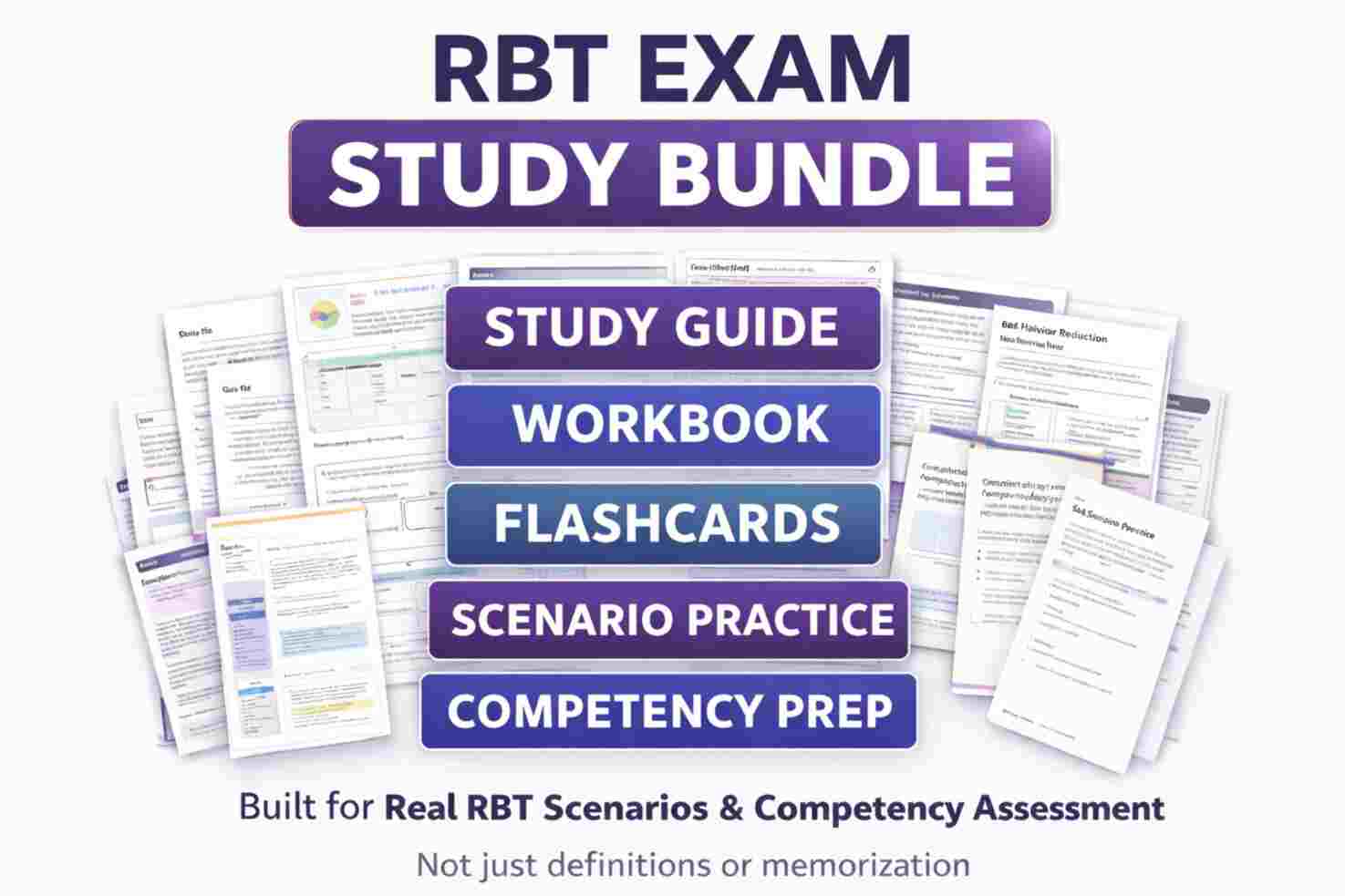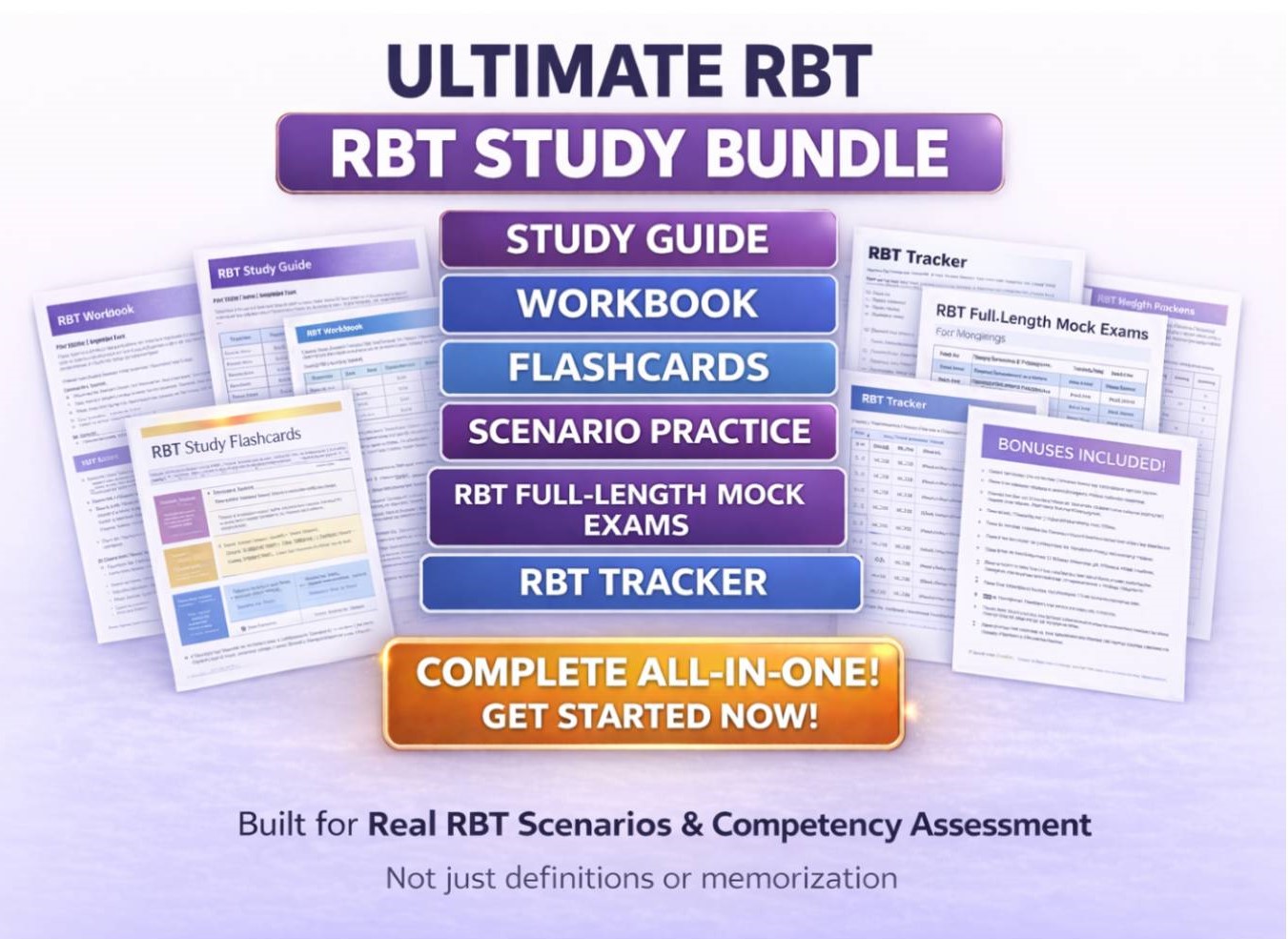Before taking the Registered Behavior Technician (RBT) certification exam it’s crucial to practice in preparation, for the test day. To assist with this process a RBT practice test has been developed containing 75 questions to those encountered at the official Pearson VUE test center.This practice assessment aims to provide insight into the exam format and offer an environment, for practicing.
The queries, in this practice test mirror the subjects covered in the examination you’re preparing for. You will be questioned about topics like decreasing behaviors, acquiring skills gathering data and conducting oneself professionally. These are all areas to comprehend thoroughly if you aim to succeed in the examination and earn certification, as an RBT. Through practicing with this assessment you will enhance your understanding of the content and familiarity with how questions are phrased in the exam.
RBT Mock Exam Full
Quiz Complete!
Spend some time going through each question especially the ones that you answered incorrectly. Ask yourself what you did wrong and read the explanation or think about why the correct answer is better. That way you’re not just practicing — you’re learning and improving. Don’t try to hit an A+ on the first kick, but try to do better each time you take a test.
Engaging in this practice exam can boost your self assurance well. It’s common for individuals to experience some apprehension prior, to the RBT assessment due, to the uncertainty of what lies. Adopting a test scenario can enhance your comfort level with the types of questions posed and the overall setup of the exam. This approach can alleviate your nerves. Enable you to maintain composure and concentration during the assessment.
Prepare the right way, before your competency assessment.
You can boost your confidence by taking this second practice test. You’ll feel more at ease on the actual test the more you become accustomed to the format and types of questions you’ll encounter. Knowing what to anticipate and how to manage your time effectively will enable you to perform better.
Studying for the RBT exam means learning more than just procedures and terminology — it’s also about understanding professional behavior and ethical practice. Unit F focuses on how to act responsibly, maintain boundaries, and protect clients. Here are ten valuable tips and practical strategies to help you master this section with confidence and clarity.
1. Know Your Scope of Practice
RBTs are trained to implement treatment plans, not to design or modify them. If an exam question suggests making clinical decisions or giving advice without input from a BCBA, it’s likely incorrect. Stick to your role and always choose the response that includes discussing the issue with your supervisor or referring it to the BCBA.
2. Supervision Is a Requirement, Not an Option
You are required to receive supervision for at least 5% of the total hours you provide direct therapy each month. Avoid any answers that suggest skipping, delaying, or minimizing supervision. Consistent supervision ensures ethical and high-quality service delivery and is non-negotiable.
3. Set Clear Boundaries
RBTs must maintain professional boundaries at all times. This means not attending personal events, accepting gifts, or keeping in contact with clients outside of sessions. If a question presents a scenario where personal involvement is suggested, go with the answer that protects your role and the client’s privacy.
4. Embrace Feedback
Receiving and applying feedback is part of your professional development. Whether it’s praise or constructive criticism, your role is to accept feedback respectfully and use it to improve your performance. Avoid answers that show defensiveness or resistance. Instead, focus on responses that involve openness, clarification, and a willingness to grow.
5. Let the BCBA Take the Lead
If a parent or caregiver expresses concerns or asks to change something in the plan, your job is to listen and refer them to the BCBA. Do not provide suggestions or make changes yourself. Choose exam responses that reflect this boundary and reinforce the importance of supervision.
6. Avoid Dual Relationships
Dual relationships happen when your personal and professional roles overlap. Examples include babysitting, attending social events, or connecting with clients or caregivers on social media. These scenarios often appear in exam questions, and the correct answer is usually the one that maintains a clear, professional distance.
7. Protect Confidentiality
Only share client information with individuals who are authorized to receive it. Never discuss client details with friends, on social media, or with others not involved in treatment. Look for answers that emphasize confidentiality and proper communication protocols.
8. Watch for Red Flag Language
Certain phrases often indicate incorrect answer choices. Be cautious with options that mention offering personal advice, skipping supervision, changing plans, accepting gifts, or acting without training. On the other hand, correct answers usually emphasize professionalism, following the behavior plan, referring to the BCBA, and protecting client dignity.
9. Practice with Intention
Rather than just memorizing questions, focus on understanding the rationale behind each correct answer. When you make a mistake, review the concept and create flashcards for rules or guidelines you need to review. This approach helps reinforce long-term learning.
10. Think Like a Professional RBT
RBT exam questions are often judgment-based. When you’re unsure, think about what an ethical, responsible RBT would do on the job. If your answer supports client dignity, respects your scope, and includes your supervisor in important decisions, you’re likely on the right path.
Frequently Asked Questions
What can an RBT do within their scope of practice?
RBTs can implement behavior plans, collect data, and assist with direct therapy. They cannot design plans, give diagnoses, or make clinical decisions.
Can I accept a gift from a client or their family?
Small gifts under $10 are sometimes acceptable, but it’s safest to politely decline and discuss with your supervisor if unsure.
Can I connect with clients or families on social media?
No. Social media relationships with clients or their caregivers are considered dual relationships and should be avoided.
What if I miss a supervision session?
Let your supervisor know immediately. If you’re on vacation or not providing services, you aren’t required to be supervised during that time.
Can I share a success story or picture of a client online?
No, unless you have written permission and approval from your supervisor. Even then, it’s best to avoid posting to maintain confidentiality.
Final Thoughts
Unit F is all about professionalism, ethics, and doing what’s best for the client. When answering exam questions, always prioritize safety, dignity, and clear communication. Think of every situation as if you were already working in the field. With these tips, you’ll be ready to handle any scenario — both on the test and in your future career as an RBT.



